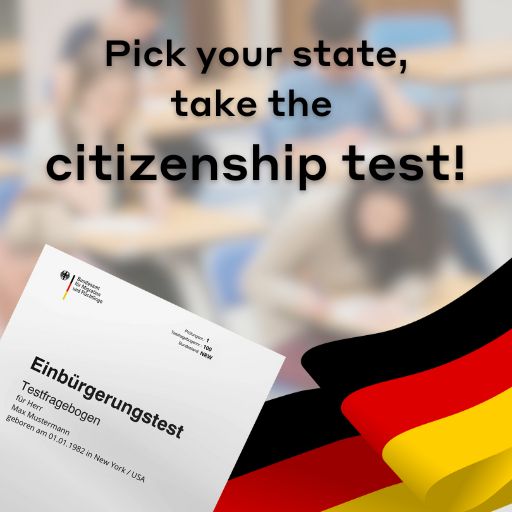The Germany Opportunity Card, or Chancenkarte, came into force on June 1, 2024. Designed to encourage skilled non-EU workers to come to Germany, the law introduces a Chancenkarte (Opportunity Card) based on qualifications and points.
Although Germany is one of the most economically developed countries, it is facing a shortage of skilled labor due to its aging population. Currently Germany needs 1,980,000 skilled workers. If this deficit cannot be filled, Germany’s economy could face serious problems.
For this reason, the German government has relaxed recruitment standards to encourage the migration of skilled workers. Thanks to the Opportunity Card, Germany aims to attract around 400,000 foreign workers annually.
So, what is the Germany Opportunity Card? Who can get an Opportunity Card? What are the criteria for the Opportunity Card?
In this blog post you will find everything you need to know about the Germany Opportunity Card.
What is the Germany residence opportunity card?
Opportunity Card in Germany, also known as the Chancenkarte, is an application that allows people who meet certain criteria to work in Germany. This card facilitates the conditions for those who want to work in Germany by aiming to overcome the labor shortage. With the Opportunity Card, it is now more accessible to come and work in Germany.
Who can get a Chancenkarte (Opportunity Card) in Germany?
If you come from a country that is not Iceland, Liechtenstein, Norway or Switzerland or not within European Union, when you want to apply for an Opportunity Card under §20a AufenthG in Germany, you must belong to one of the following two groups (Group 1 and Group 2).
Group 1 – Persons whose professional or academic qualifications are fully recognized in Germany
You have a foreign professional or academic qualification that is fully recognized in Germany. Alternatively, you obtained your university or professional qualification in Germany.
There are no additional requirements for Group 1 applicants, such as language or score accumulation. So, if you are already a university graduate, have a qualified profession or have two years of vocational training, you will not need to collect 6 points. However, your vocational training or university education must be fully recognized by Germany.
If you have obtained a university degree or a professional qualification in Germany, according to Section 20 of the Residence Act [AufenthG], job seekers can receive an Opportunity Card for 18 months instead of 1 year, during which time you can work part-time without restrictions.
In addition, you do not need to prove that you have at least A1 (CEFR) level German or at least B2 (CEFR) level English language skills.
Group 2 – Persons whose qualifications are not yet or only partially recognized in Germany
If your profession or training is not recognized or only partially recognized in Germany, you must achieve at least six points in the points system and also meet the following requirements.
Additional requirements for Group 2
First of all, you must have successfully completed a vocational or academic education. It is important that this education is recognized by the state in the country where it was received. A vocational qualification also requires at least two years of study.
In addition, you must have at least A1 (CEFR) level German or at least B2 (CEFR) level English language skills. At this point, we explain below where you can obtain certificates to prove your knowledge of German and English.
Opportunity Card Points Calculation
You can calculate whether you can get an Opportunity Card for free with the Germany Opportunity Card Points Calculator. Opportunity card point collection is only valid for Group 2, Group 1 can get an Opportunity Card without any point requirement.
The Opportunity Card points calculation tool updated by Vasistdas is based on the points calculation tool on the make-it-in-Germany website. Compared to the tool at make-it-in-Germany website, our tool providers further information for you.
Please note that this score calculation tool is a simulation set up for assistance purposes only, it does not affect your visa result in any way.
Opportunity card visa application requirements
There are 2 important prerequisites for you to receive an Opportunity Card:
- Be in Group 1 or Group 2 for the opportunity card. If you are in Group 2, have a beginner’s level of German (A1) or a good command of English (B2) and prove it with official language certificates.
- Prove that you will be able to make a living during your stay in Germany (for this you need toopen a blocked account or find a guarantor ).
Documents required for the visa application
The documents required to apply for an Opportunity Card are quite numerous, it is worth mentioning this from the beginning. Let’s go over these documents together and make additional explanations where necessary.
- 2 application forms: you can find the application form here. Alternatively, you can print it out using the Online Application Form.
- Visa fee: The general visa fee is €75.00.
- Valid passport and 2 photocopies of the passport page with personal information (photo page).
- 2 passport size photos: Passport photos must be biometric, no older than 6 months and 35 x 45 millimeters in size.
Please be aware that documents requested for Opportunity Card might differentiate based on the requirements of the German Embassy in your country.
For India, Chancenkarte (Opportunity Card) requirements are listed here by German Missions in India.
For Pakistan, Opportunity Card (still listed as Job Seeking visa) requirements are listed here by German Missions in Pakistan
Additional documents for the visa application
Depending on your nationality, the following documents might also be brought with you during the application:
Documents proving your professional or academic qualification
Here you can prepare your application documents with 3 options:
Option 1: Higher education diplomas from Germany if you attended university in Germany
Option 2: If you graduated from a university outside Germany:
- School graduation certificate (copy of diploma) and barcoded graduation certificate (e-Government)
and
- A printout of the equivalence certificate from the “Anabin” website, which shows that your degree is equivalent to the German degree. The university you graduated from must be marked with “H+” in Anabin and your degree (e.g. Bachelor of Arts/Science) must be marked “entspricht” (equivalent) or “gleichwertig” (equivalent).
Option 3: Vocational recognition certificate if you have vocational training
A vocational equivalence certificate is a document issued by the competent authority showing that the education you received in your home country is equivalent to the education given in Germany.
Professional license or aprobation
If your profession is one of the professions regulated in Germany (e.g. health care professions): in this case you will need a professional license or an aprobation certificate. A guarantee that this will be issued may be sufficient.
Motivation article
Here you should briefly explain in German why you are applying for a job and who you are. Check our article regarding motivation letter for Germany.
Curriculum vitae and German translation
You can take a look at our article on resumes in Germany.
Evidence that you are looking for a job
Papers showing that you are currently looking for a job. For example, a printout of your e-mail correspondence with potential employers, an invitation to an interview, a printout of your job applications on job search portals such as Indeed or Linkedin.
Professional activity certificates
Documents proving professional activities to date. For example, a work certificate, carnet/diploma, barcoded SSI service breakdown can be submitted.
Certificate of financial adequacy
Documents showing how you will finance your living expenses for the total duration of your stay in Germany (1 year). You can find the required funding limit on our Blocked Account website.
You can choose one of the following options:
- Collateral payment into a blocked account at a bank in Germany. See our article on blocked accounts for the Opportunity Card.
- An undertaking (Verpflichtungserklärung) according to §§ 66-68 of the Residence Act, submitted to an immigration office in Germany. A letter of undertaking (Verpflichtungserklärung) according to Sections 66 to 68 of the Residence Act. The letter of commitment must contain the words “Bonität nachgewiesen” (Bonität nachgewiesen) and state the purpose of your stay in Germany. See our article Guarantor letter for the opportunity card.
Health insurance for Opportunity card
Proof of health insurance (Incoming Travel Insurance) covering the entire duration of your stay must also be provided. Health insurance for the Opportunity card offered by Vasistdas is available here.
What are the Opportunity card criteria?
As mentioned, if you are not in Group 1, you will need to score 6 points. The main criteria for the lucky card are language skills, professional experience, age limit and a connection to Germany. However, even if you do not meet all of these criteria, it will be enough if you have passed the limit in the scoring system.
| Opportunity Card Points Criteria | Opportunity Card Points |
|---|---|
| Professional Equivalence and Experience | |
| Professional equivalence | 4 |
| At least 5 years of experience in the last 7 years | 3 |
| At least 2 years of experience in the last 5 years | 2 |
| Having a profession in demand in Germany | 1 |
| Foreign Language | |
| Good German (B2/C1 level and above) | 3 |
| Sufficient German (B1) | 2 |
| Basic level German (A2) | 1 |
| Very good English (C1) | 1 |
| Other | |
| Being between 18 and 34 years old (not turning 35) | 2 |
| Being between 35 and 40 years old (not turning 40) | 1 |
| Having lived in Germany for at least 6 months in the last 5 years | 1 |
| Spouse also meets the criteria for the opportunity card and applies together | 1 |
Foreign language skills
First of all, please note that the prerequisite for applying for the opportunity card is a beginner’s knowledge of German (A1) or a good command of English (B2) and proof of this with official language certificates.
You will receive 3 points for a good level of German (B2), 2 points for a sufficient level of German (B1) and 1 point for a beginner level of German. You will also receive 1 point if you have a C1 level of English.
However, you can only earn points in one area of the foreign language category. In other words, you cannot earn points for both knowledge of German and knowledge of English.
In addition, this language level must be officially certified.
Professional experience
You have to prove your professional experience with an SSI certificate and a diploma is required. This is because the German government wants to see that you are an expert in this job with official documents before issuing an opportunity card.
If you have 5 years of experience in the last 7 years, the government gives you 3 points, but if you have 2 years of experience in 5 years, you get 2 points.
In addition, you get 1 point if you have one of the most needed professions in Germany.
Other
There are two different ways to get an opportunity card depending on your age. If you are under 35, you get 2 points. If you are over 35 but under 40, you get 1 point.
In addition, you can get 1 point if you have lived in Germany for at least 6 months in the last 5 years.
If your spouse also meets the requirements for the Opportunity Card application and will apply at the same time as you, then you will both earn one more point.
How to apply for an Opportunity card?
As of June 1, 2024, the Opportunity card came into force. The application process has also started through official visa handling agencies of German Embassy in different countries. To find out how to apply, please visit the website of the German diplomatic mission responsible for you.
Germany opportunity card application dates
Opportunity Card applications started to be received as of June 1, 2024. You can also make your application at any time.
What are the advantages of the Opportunity Card?
In Germany, there are many advantages of the Opportunity Card, especially when you consider previous visas. Let’s take a look at the advantages item by item:
- The opportunity card (Chancenkarte) will be valid for 1 year and will require much less bureaucracy and documentation than previous visas.
- With the Opportunity Card, if a job is not found at the end of 1 year, the visa period can be extended for another 1 year.
- If you come to Germany in search of work, you can work 20 hours a week at any job to make ends meet during this time.
- People who will come to Germany with the opportunity card will be able to try a full-time job not more than 2 times.
- If they cannot continue after they get a job, they will be able to quit their job for a maximum of 2 times.
Feel free to watch our Youtube video regarding Opportunity Card in Germany and do not forget to enable subtitles unless you plan to sharpen your Turkish language skills.
Frequently asked questions about Opportunity Card in Germany
In this section, we answer your questions about the opportunity card.
Who can get a Chancenkarte (Opportunity Card) in Germany?
People with a professional qualification of at least 2 years, bachelor’s degree graduates and people who fulfill the requirements of the lucky card scoring system and collect 6 points can apply for a lucky card.
How to apply for an Opportunity card?
The Opportunity Card came into force on June 1, but the application system has not yet been opened. Once it is open, people will be able to apply through iDATA, the official intermediary of the German Embassy.
Which documents do I need to have translated for the Opportunity card application?
For the SSI transcript required for the Opportunity Card application, translation is generally not required if it is “barcoded”. Your diploma (if it is in English, translation is not required), motivation letter can be in English but we recommend that it is in German. Your CV should also be in German.
Is it necessary to speak German for the opportunity card?
Persons whose qualifications are not yet recognized or only partially recognized in Germany (Group 2), a beginner’s level of German (A1) or a good command of English (B2) is required. There is no language requirement for Group 1.
How do I prove my knowledge of German?
For the Opportunity Card, you will prove your knowledge of German (or English) through certificate programs officially recognized by Germany. Goethe, TELC and ÖSD language certificates are generally accepted by Germany. However, it should be noted that for some countries TELC A1 level certificates are not accepted.. If you are going to take this level, it would be best for you to take the exam of institutions such as Goethe.
Are there any consulting companies you recommend?
No! You do not need a consultancy company for the Opportunity card or any visa application. Unfortunately, there is a high rate of fraud among the institutions and individuals offering consultancy services. Therefore, please make your own applications instead of working with a consultancy company.
In which country can I apply for recognition with a residence opportunity card?
If you achieve the maximum points by meeting the specified criteria, you have the opportunity to come to Germany and apply for recognition. You will also be allowed to continue working during this period.
Will vocational certificates such as apprenticeship or journeyman certificates be accepted?
Yes, it will be accepted. If you have these official certificates, you do not need to get equivalence.
Will vocational schools be accepted for the Germany Opportunity Card application?
Yes, it will be. If you have a professional qualification, you can apply if you have graduated from a higher school where you have proven your competence in this field.
How old do you have to be to get an Opportunity Card?
There is no specific age limit for the German Opportunity Card, but the program is designed for young people to come to Germany. The draft law explains this as follows:
“Young people are more likely to gain experience in their professions or to change their professions if this is necessary in the context of the migration situation. It is also easier for them to establish locally sustainable old-age security (i.e. pension insurance) in Germany.
Apart from higher positions, their employability in the labor market is also higher for young people in many sectors. The introduction of this feature is neither contrary to European Union law nor to the Constitution. “
How long is the session opportunity card valid?
The opportunity card (Chancenkarte) issued by Germany will be valid for 1 year, 18 months if you are educated in Germany.
Can the opportunity card be extended?
The card can be extended for up to two years if applicants can present an employment contract for qualified employment and the Federal Employment Agency agrees.
Can I make family reunification with the Opportunity Card?
No, you cannot do family reunification with an opportunity card. In other words, if you are issued an Opportunity Card visa, your spouse or child cannot benefit from this visa. However, if your spouse also applies for an Opportunity Card, you both get one point each.
Can children come with the opportunity card?
Yes, children can come with you with the German Opportunity Card (Aufenthaltsgesetz, § 32 Kindernachzug). BUT, in this case, both mother and father need a visa for Germany.
Can I do my own business or start my own business with the Opportunity Card?
No, you cannot start or run your own business with the Opportunity Card.
Which certificates are valid for the German Opportunity Card?
There are some exams to prove your German language level and you need to pass these exams. We have explained the exams of the institutions you can choose for your language level to be recognized by Germany in this link.
Which certificates are valid for the Opportunity card in English?
For the German Opportunity Card (Chancenkarte-visum), certificates from the following institutions are valid to prove English proficiency:
- TOEFL (Test of English as a Foreign Language)
- IELTS (International English Language Testing System)
- Cambridge English Exams (FCE, CAE, CPE)
These certificates are usually recognized by official authorities in Germany and are used to prove your English proficiency.
What is the difference between an opportunity card and a job search visa?
There are some differences between the opportunity card and the job search visa. The Opportunity Card gives a chance to 4-year graduates, as well as 2-year associate degree graduates and those with professional qualifications. However, the job search visa does not allow this. In addition, the job search visa gives a 6-month period, while the Opportunity card gives a 1-year period.
Is it possible to travel to the Schengen area with the Opportunity card?
Yes, you can travel with the Chancenkarte.
When should I open a blocked account for the Opportunity card?
You must have the amount described in your blocked account before you go to your visa interview.
Do I need to have my documents translated into German when applying for an Opportunity card?
This is highly advisable, please check the requirements of the German Embassy in your home country.









